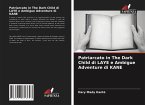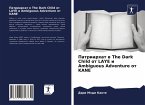The central premise of this book is that children's reading was and continues to be critical to the shaping of a child's subjectivity. Drawing on the work of Foucault and Said, the book offers an incisive account of the rise of children's reading in Britain and its implications for the working class movement in the nineteenth century. It analyzes nineteenth century adventure fiction for boys to show how structurally complicit genres such as anthropological, missionary and travel writing shaped the idea of Africa in these novels. Analyzing the novels of G. A. Henty and H. Rider Haggard in particular, the book argues that Africa and Africans structured the movement of adventure in a way that entrenched the working class boy in the imperial project. Using the categories set up for the analysis of adventure fiction, the conclusion offers a reading of Gandhi's Satyagraha in South Africa to establish that Indian manhood, like the adulthood of the British boy, is predicated on an unequal relationship with the African. This book will be valuable to those interested in Children's Literature, Colonial Discourse and African Studies from a Cultural Studies perspective.
Bitte wählen Sie Ihr Anliegen aus.
Rechnungen
Retourenschein anfordern
Bestellstatus
Storno








